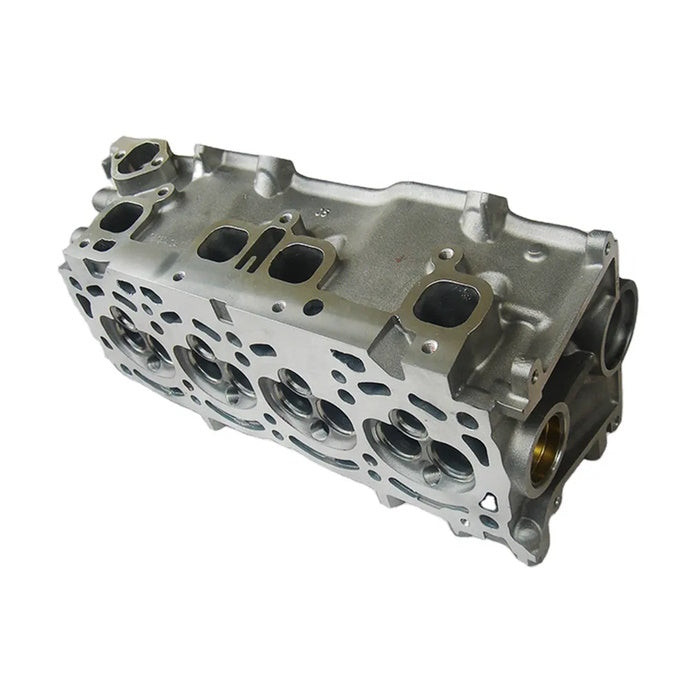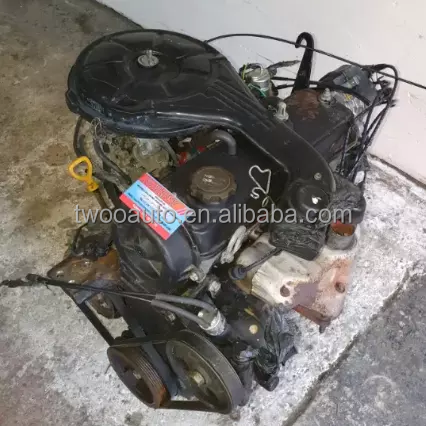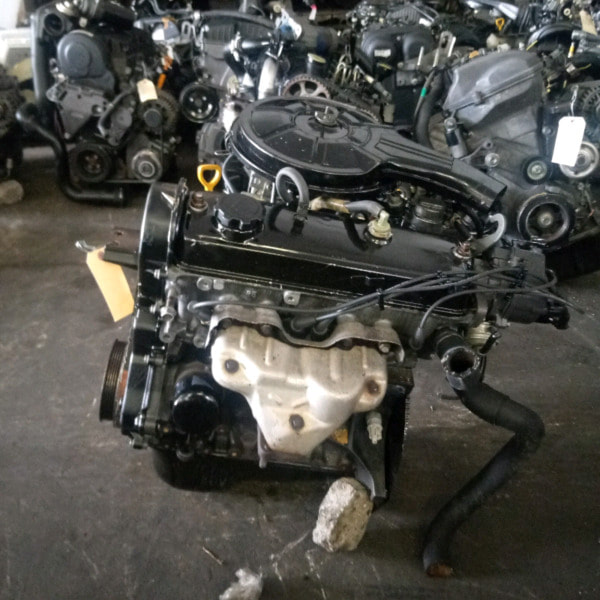Toyota Tazz: A Comprehensive Review of Performance and Comfort
Toyota Tazz: A Comprehensive Review of Performance and Comfort
Blog Article
Explore the current Trends in Engine Modern Technology With Tazz
In the swiftly advancing landscape of auto technology, Tazz stands at the forefront, highlighting considerable improvements in engine systems that prioritize both development and sustainability. tazz. From hybrid engines that enhance gas performance to the appearance of hydrogen gas cells, the fads forming modern-day powertrains are not only boosting performance but also dealing with vital environmental difficulties. As the sector proceeds to press borders, it is crucial to take into consideration just how these growths will certainly influence future transportation options and the wider implications for worldwide energy consumption. What exists in advance in this essential change?
Hybrid Engine Innovations
Crossbreed engine developments stand for an essential shift in automobile technology, incorporating the benefits of inner combustion engines with electrical propulsion systems. This combination not only improves fuel effectiveness however also lowers discharges, conference progressively stringent ecological regulations. By using both power resources, hybrid engines can optimize efficiency, delivering power when required while conserving fuel throughout less requiring motoring conditions.
Current advancements in hybrid modern technology include renovations in battery efficiency and regenerative braking systems. These technologies enable for better power healing throughout slowdown, which can be redirected to help in velocity or power auxiliary systems. Moreover, suppliers are concentrating on compact designs and light-weight products to make the most of the effectiveness of crossbreed powertrains.
The growth of plug-in crossbreeds has also broadened the market, allowing motorists to bill their lorries using common electric outlets. This attribute usually allows for significant all-electric range, further decreasing dependence on traditional fuels. tazz. As the vehicle market remains to develop, hybrid engine innovations are expected to play an essential role in linking the void in between traditional lorries and completely electrical versions, offering a transitional service that accommodates diverse consumer needs and preferences
Advancements in Electric Powertrains
The vehicle landscape is rapidly progressing, with electric powertrains becoming a leading pressure in sustainable transportation. Developments in electric vehicle (EV) innovation are significantly improving performance, efficiency, and customer experience. Secret technologies include enhancements in battery chemistry, which have actually boosted power density, minimized billing times, and expanded general battery life.
Solid-state batteries, as an example, assure to reinvent the market by offering greater safety and security and effectiveness compared to typical lithium-ion cells. Furthermore, innovations in regenerative braking systems are allowing automobiles to recover power throughout deceleration, adding to total performance.
In enhancement to battery technology, electric motor designs are coming to be much more sophisticated. Advancements such as integrated motors and progressed thermal administration systems are aiding to optimize power distribution and reduce weight, inevitably boosting lorry dynamics.

Jointly, these developments underscore the dedication to shift in the direction of cleaner, much more effective transport solutions, positioning electric powertrains at the leading edge of auto innovation.
The Increase of Hydrogen Gas Cells
Progressively, hydrogen gas cells are getting traction as a feasible alternative to standard inner combustion engines and battery electric lorries. This technology takes advantage of the chemical energy kept in hydrogen, transforming More Info it into electrical energy with an electrochemical response with oxygen. The primary byproduct of this process is water, making hydrogen gas cells an environmentally friendly alternative with zero exhausts at the tailpipe.

Automakers are significantly purchasing hydrogen fuel cell innovation, acknowledging its possibility for long-range applications and fast refueling capacities that measure up to conventional fuels. Furthermore, markets such as sturdy transportation and public transportation are particularly well-suited for hydrogen fuel cells, where battery electric services might fail as a result of weight and range limitations.
As research and investment remain to expand, hydrogen fuel cells are poised to play a significant role in the future landscape of clean transportation and energy services.
Enhancements in Internal Combustion Engines
Advancements in interior combustion engine (ICE) innovation are transforming conventional cars to satisfy contemporary environmental standards and performance assumptions. One of the most significant enhancements entails the assimilation of innovative fuel injection systems. These systems optimize the air-fuel mixture, boosting burning effectiveness and leading to decreased discharges. Direct fuel injection, for instance, permits for far better atomization of fuel, resulting in more full combustion and enhanced power result.
Furthermore, turbocharging has actually gained importance, allowing smaller engines to supply greater efficiency without the weight of larger engines - tazz. This modern technology not just increases effectiveness yet likewise contributes to reduce fuel consumption. Variable shutoff timing systems are also being refined, making it possible for engines to adjust to various driving problems for boosted torque and responsiveness
Moreover, using lightweight products in engine building is becoming common, additional boosting gas performance by reducing total vehicle weight. Engine control units (ECUs) are progressively sophisticated, making it possible for real-time adjustments that maximize performance and emissions.
These enhancements jointly indicate a pivotal shift in ICE innovation, straightening with international sustainability goals while still providing the efficiency chauffeurs get out of their vehicles. As the market advances, these enhancements remain to shape the future of traditional automobile engineering.
Future Trends in Engine Efficiency
Significant innovations in engine efficiency are expected as manufacturers concentrate on incorporating advanced innovations to meet stringent environmental laws and customer demands. The shift towards electrification, hybrid systems, and alternate gas is improving the auto landscape, driving innovations that enhance gas economy and reduce emissions.
One of the key fads is the execution of innovative products and making methods. High-strength alloys and view it now lightweight composites add to reduced vehicle weight, hence boosting total effectiveness. Furthermore, the adoption of turbocharging and variable shutoff timing modern technologies permits enhanced power output from smaller engines, additionally improving fuel economy.

Final Thought
Innovations in hybrid engine systems, electric powertrains, and hydrogen fuel cells show a dedication to lowering emissions while improving performance. Enhancements in inner burning engines and an emphasis on light-weight materials contribute to overall engine efficiency.
From hybrid engines that enhance fuel effectiveness to the introduction of hydrogen gas cells, the fads forming modern-day powertrains are not just boosting efficiency yet additionally addressing crucial environmental challenges.Hybrid engine innovations represent a pivotal shift in auto technology, incorporating the advantages of inner burning engines with electrical propulsion systems.Furthermore, turbocharging has acquired prominence, allowing smaller sized engines to supply greater performance without the weight of larger engines. Additionally, the fostering of turbocharging and variable shutoff timing modern technologies allows for improved power outcome from smaller engines, additionally boosting fuel economic situation.
Renovations in go to the website internal combustion engines and an emphasis on light-weight products contribute to overall engine effectiveness.
Report this page